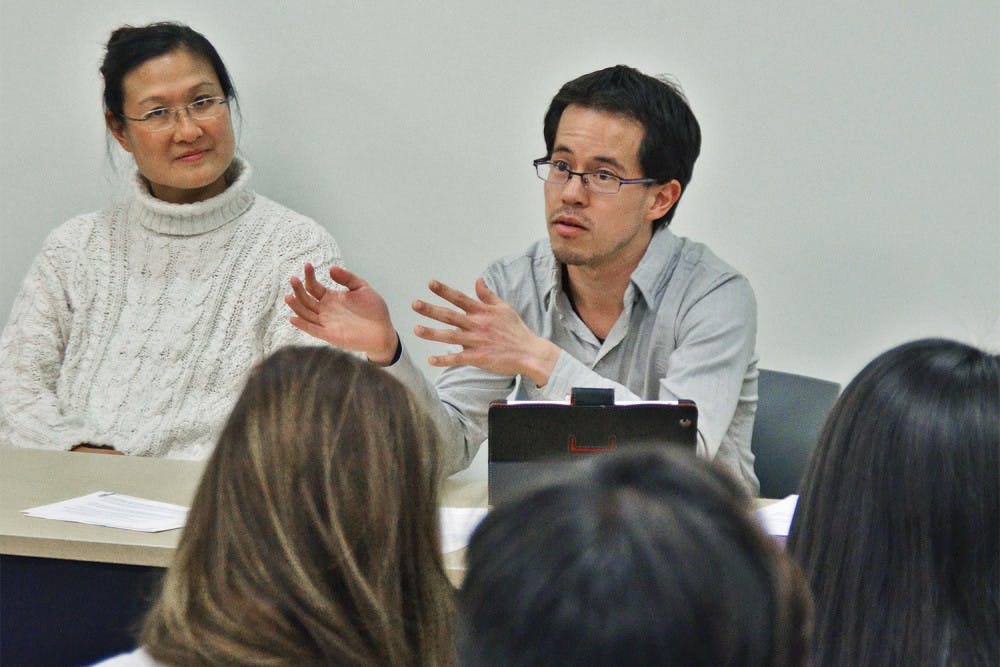“There’s not just one way to identify as an Asian-American person, and I think that’s something that we need to remind the administration — that we’re not just going to be a photo op for them and to say ‘oh look at our diverse student body population,’ and then they trot out Asian-American students when they want to have a certain optic,” said Jennifer Ho, director of UNC’s graduate English program, and a speaker at a race and identity discussion Monday.
The Asian Student Association partnered with RadAsians to hold the event as a part of their Asian Pacific American Heritage Month campaign. Jasmine Sun, vice president of the Asian Student Association, said Asian-Americans are generally more passive about finding where they fit in the racial spectrum.
“Especially in the racial context of right now, where you have all these things like Black Lives Matter happening, it’s important to also bring up, well, what does it mean to be Asian-American?” Sun said.
Stevie Larson, the second guest speaker, said he did not identify as Asian-American until after he graduated from the University of Puget Sound, a small liberal arts college with a mostly white student population.
Larson said the term “Asian-American” began with the Immigration Act of 1965, which abolished strict immigration quotas in order to bring in high-skill immigrants to industries. Larson said this is how the association between Asian-Americans and professions like medicine and technology began.
“This was a terrifically strong weapon used against African American communities,” he said. “So, if the Asians can do it (on their own merit), it’s totally okay for (the U.S.) to gut welfare and other social services for anyone else.”
UNC student David Choi said he finds it harder to identify micro aggressions they face every day because they are so common.
“It’s hard to distinguish specific episodes of micro aggression, because they have become internalized as a regular part of what it means to live in America,” Choi said. “It’s hard to distinguish micro aggressions from ‘that’s just how white people act’ or ‘that’s just how Asian-Americans are.’”



